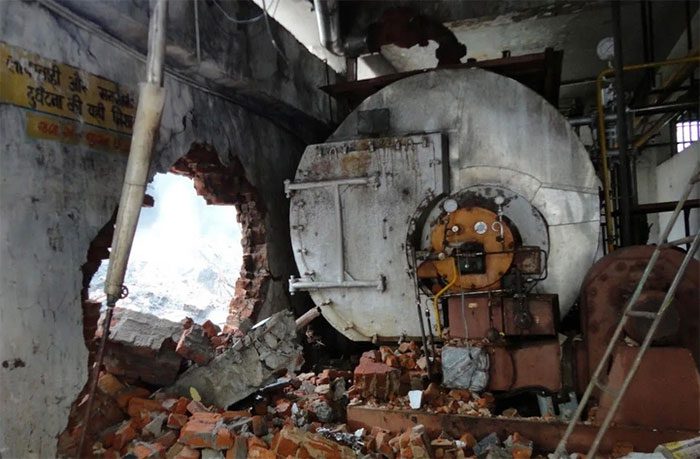Boilers are common equipment used in many industries today and require a skilled workforce to operate safely.
Causes of Boiler Explosions
Industrial boilers are widely used to produce steam from water, serving many applications in industries such as manufacturing, food processing, and power generation.
For instance, in the textile industry, steam from the boiler is used to iron clothes. In the fabric industry, boilers are used to dry textiles, while in the lumber industry, they are used to dry fresh wood.
Experts from Thermodyne, a leading industrial boiler manufacturer in India, explain that boilers usually operate based on the principle of converting energy from fuel (such as wood, rice husks, oil, etc.) or electricity into heat, which then heats water to produce steam under increased pressure.
According to Thermodyne, overpressure is the most common cause of boiler explosions. When the pressure inside a boiler exceeds its design limits, it can lead to structural damage and ultimately result in an explosion.
Certain corrosive materials can also cause explosions. The corrosion process caused by steam weakens the boiler’s structure over time, especially in industrial environments.
Additionally, if the water used in the boiler contains many impurities, it may lead to the accumulation of sludge and cause localized overheating, which can ultimately lead to an explosion.
In 2013, a boiler explosion in Louisiana, USA, resulted in 2 fatalities and 167 injuries. The incident began when the pressure in a piece of equipment suddenly increased, leading to a boiler explosion and a fire.

A boiler explosion in the USA – (Photo: ELECTRICAL ENGINEER).
How to Ensure Safety?
According to the Occupational Safety and Health Administration (OSHA) in the USA, the first and foremost requirement is that operators must monitor and strictly control the pressure and temperature in the boiler to prevent overpressure.
Nowadays, most boilers are designed with pressure relief valves. These valves should be regularly inspected and tested to ensure they function properly.
The next step is boiler water treatment to prevent the accumulation of sludge, corrosion, and the growth of microorganisms within the system. Trained personnel must closely monitor water quality and regularly check the water quality parameters.
Experts from Burnn Boiler & Mechanical (USA) advise workers to regularly clean and maintain components related to combustion such as fuel pipes and burners to prevent fuel leaks and other hazards that could lead to explosions.
Moreover, companies using boilers need to be well-versed in emergency protocols in case of incidents. Workers should be trained on how to use PPE, how to respond quickly and accurately to alarms, leaks, or other emergency situations.
“Workers should receive thorough training and regularly update their knowledge about safe boiler operation, potential hazards, and accident prevention measures,” emphasized experts from Burnn Boiler & Mechanical.


















































